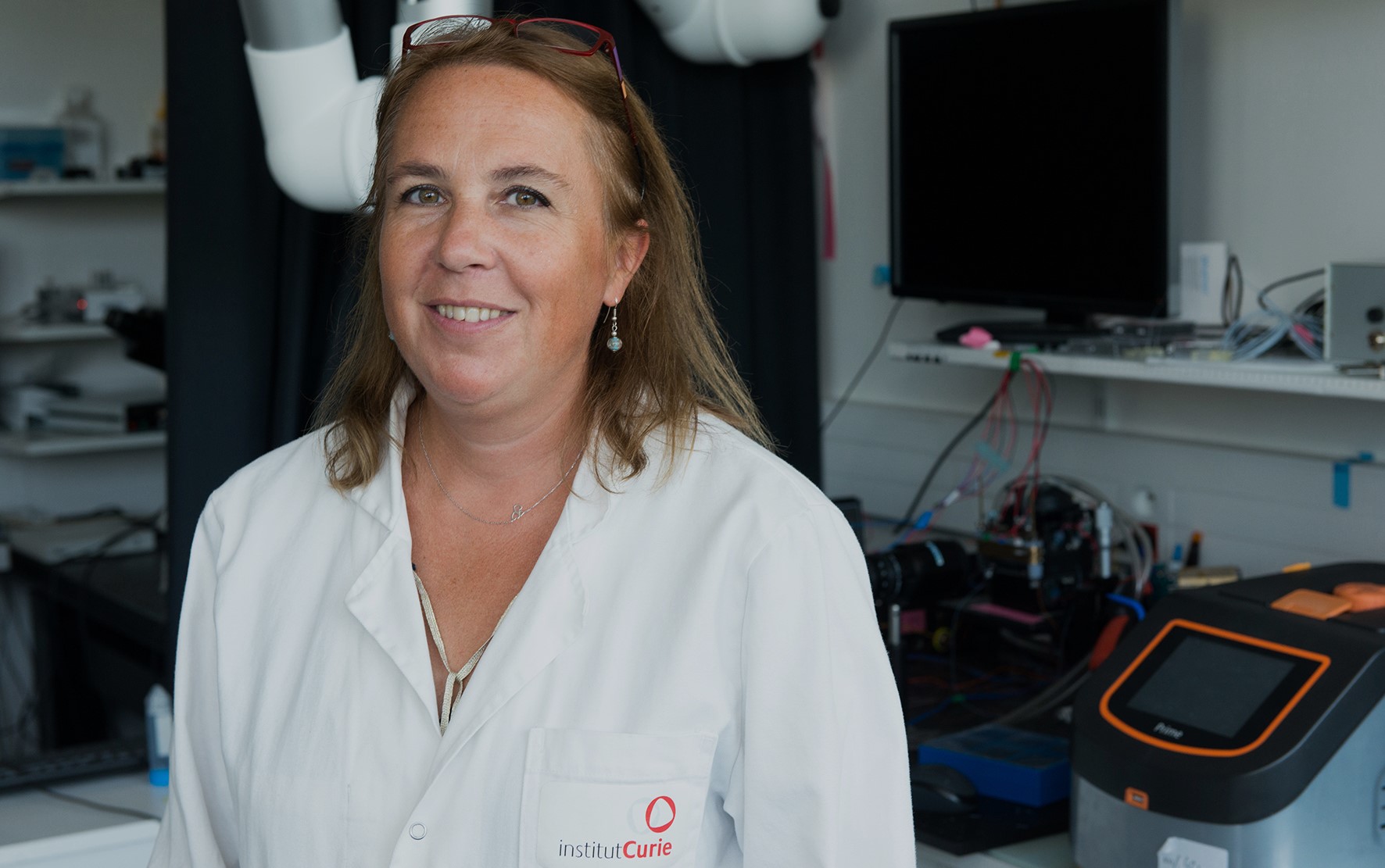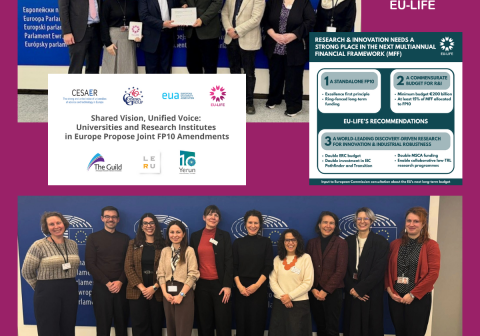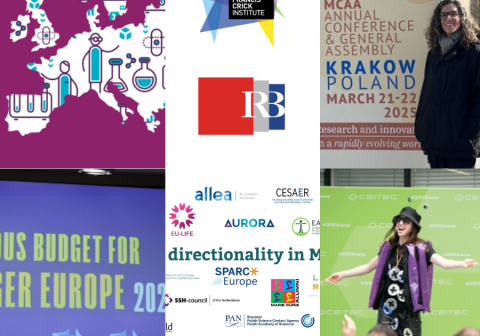Women in EU-LIFE: Stéphanie Descroix, Team Leader at Institut Curie

Could you tell us a bit about your research?
My current team research relies on the strong interplay between, on one hand, cutting-edges technological developments in microfluidics and biophysical and clinical challenges, on the other hand. With my team we now have the ambition to develop a new generation of bioengineered models such as organ on chip that faithfully reproduce in vivo complexity. We aim at using these models to better understand biological mechanisms and we also consider that those models will be essential for developing and evaluating cutting-edges therapies.
Could you take us back to the beginning of your scientific career? What got you interested in this field?
I have an initial background in life sciences and then did my PhD in chemistry, so I have been used to interdisciplinarity for some time. At the beginning of my career, I must say that my future path was not so clear in my mind... I started as a research fellow in a chemistry lab with a special interest in developing diagnostics. At that time, I had the chance to work closely with biologists. This inspired me so much that I decided to grow as a scientist in a fully interdisciplinary environment and decided to join the Institut Curie. The Institut Curie is a unique environment where interdisciplinarity is at the heart of research and where clinical and research go hand in hand. Since then, I appreciate this choice every day.
What would you have liked to be if you were not a researcher? Is that field related in any way to your current work?
I could have considered many options such as teacher, bookseller, public policy officer. In fact, in my youth, I had the chance to experience a variety of jobs such as tennis instructor or occasional carousel attendant.
Today, I am convinced that I could not have dreamed of a better job. Even though we sometimes complain, it is a great privilege to be a researcher. On the other hand, I am also convinced that I could have flourished in other jobs as well, provided that they were meaningful to me.
The jobs that attracted me in my youth are linked to my current work because they have to do with sharing, reflection, contact with young people and the permanent questioning of myself and others.
Do you think women studying and working in STEM face specific challenges?
I think I was lucky in these aspects, because although I was in STEM, I didn't encounter many obstacles related to my gender.
I would also have to say that I was certainly very well prepared by my mother. As a woman, she had to fight against her family to study, get a job, and be an independent woman. This was central to my upbringing and certainly helped me become the researcher but more importantly the person I am today.
There has been a lot of initiatives in the last decades to improve conditions for women in STEM. Where do you think we stand? Can you elaborate?
There are many initiatives to promote and improve the place of women in our fields, first of all I am not sure that these initiatives have been perfectly successful in the different strata of the society.
I strongly believe that there is still a lot to do for young girls to allow themselves to think of these fields as places of professional development, but above all to give desire to do these careers. Because to allow oneself to consider these careers is a necessary step but to know that one will blossom there, to be in one's place and to have fun is at least as important.
What message would you give to other women who are interested in pursuing a career in STEM?
Please go for it, we need you!!! And for sure you will have a lot of fun!!
- To know more about Stéphanie Descroix’s work, visit her research group's web page: https://institut-curie.org/team/descroix



